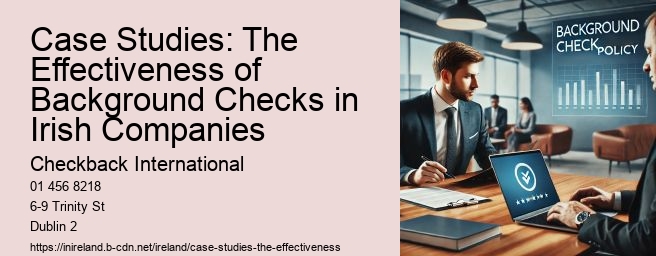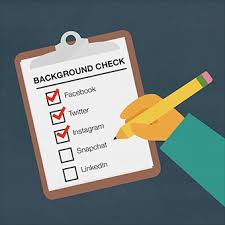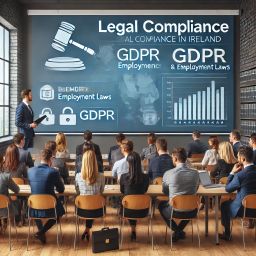

4.Credit and Financial Checks: Reviews financial status of potential employees for positions of trust.
Different industries require varying levels and types of background checks. The specific requirements depend on security needs, regulation requirements, and potential liability risks within each sector.
Employee background checks in Ireland continue to become more thorough, which helps create safe and compliant workforces. The European Criminal Record Check (ECRC) and comprehensive screenings by Checkback International follow both national and European regulations while making hiring processes more reliable. The combination of criminal record reviews and credit checks demonstrates how organizations prioritize safety and integrity
How Long Do Vetting Results Remain Valid After Initial Completion?
Fast turnaround times are valuable for the European Criminal Record Check (ECRC), helping client organizations get quick results.
The information collected must not discriminate or break privacy rights under GDPR rules and employment law.
Checkback International's screening services support regulatory compliance and fraud prevention.
The vetting system checks across 26 EU states through centralized applications, allowing background verification for candidates with various address histories.
Organizations use these credit checks to identify potential financial risks before hiring.

Frequently Asked Questions
2.Companies must keep detailed records of data processing activities, implement appropriate security measures, and establish retention periods.
Reports contain consumer credit checks, optional bankruptcy reports, and directorship history verification.


Processing takes 5 to 10 working days for standard reports, with faster options available.
PSA 74:2019 builds confidence in employment processes and protects businesses and individuals.
Airside Pass and Known Consignor Vetting
Right to Work Verification4.Event Management: Complete background checks help keep attendees safe by screening all workers, from planners to security staff.
Understanding PSA 74:2019 Vetting Standards
These international screenings need coordination with various national authorities and often involve multilingual document verification processes.
Professional Membership Verification
Companies conduct various background checks in Ireland to determine if candidates match their job requirements. These checks help verify information and assess suitability for positions.
For jobs that need background checks due to regulations or safety rules, employers must reject candidates who refuse screening to follow industry standards and legal requirements.
Challenges in Pre Employment Screening Process Pre-employment screening helps maintain workplace integrity and safety but faces several challenges under the GDPR and Data Protection Acts in Ireland. Private Security Authority Companies must follow legal requirements and get clear consent before doing background checks.

A background check in Ireland involves reviewing a person's criminal, financial, or personal records to assess their suitability for a role or position.
The duration can vary but typically takes between 1-2 weeks, depending on the type and complexity of the check.
Garda vetting is a specific type of background check required in Ireland for individuals working with children or vulnerable adults, involving checks against police records.
Yes, you must obtain consent from the individual before conducting any background checks in Ireland.
Not for all employees, but certain sectors such as healthcare and education may require comprehensive checks.
It includes checking for any criminal convictions or offences recorded against the individual.
Yes, individuals can request their own background checks in Ireland for personal review or to prepare for employment screenings.
Skipping background checks can lead to hiring unsuitable candidates, which may result in legal and reputational risks.
Yes, police clearance is a general criminal record check, while Garda vetting is specific to roles involving vulnerable groups and includes more detailed investigations.
You can request transcripts or degrees directly from educational institutions or use third-party services that specialize in educational verifications.
Information about spent convictions, certain types of personal data, and other protected characteristics under GDPR is off-limits unless specifically relevant and lawful to access.
International checks may involve additional complexities such as different laws, languages, and longer processing times.
No, background checks do not affect your credit score as they do not involve a credit inquiry that would impact the score.
Best practices include securing data in compliance with GDPR, limiting access to authorized personnel, and ensuring data is stored for only as long as necessary.
It depends on the industry and role, but typically every 2-3 years or when significant changes occur in the individual’s role or responsibility.
While not specific by law, many IT positions require checks due to access to sensitive or proprietary information.
GDPR regulates the processing of personal data, ensuring that background checks are conducted in a lawful, fair, and transparent manner.
Yes, but it must be done lawfully and with the individual’s consent, considering the relevance to the role.
Penalties can include fines, legal actions, and reputational damage, depending on the severity of the non-compliance.
Remote work has increased the importance of thorough background checks, especially for those in positions of trust or handling sensitive data.
Best practices include conducting similar checks as for permanent staff, especially if they have access to sensitive or critical areas.
Ensuring fairness involves following consistent procedures, obtaining consent, and allowing candidates to dispute inaccuracies.
Yes, it’s recommended to tailor background checks based on the specific risks and requirements of each position.
Signs include transparency about services, compliance with legal standards, positive reviews, and strong data protection practices.
Handling involves assessing the relevance to the job, discussing findings with the candidate, and considering legal and ethical implications.